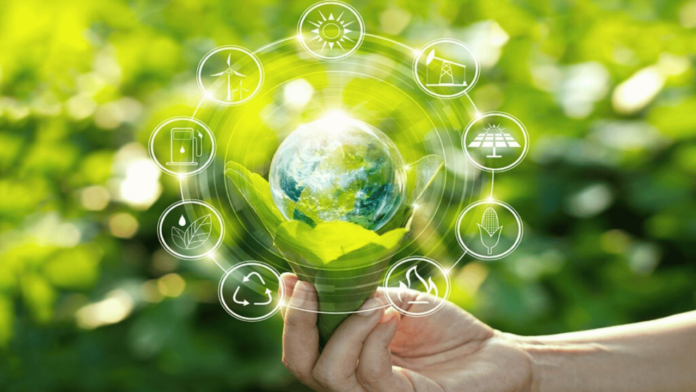Dr. Sanghamitra Bhattacharyya, Professor and Director, Centre of Excellence for Sustainable Development, Great Lakes Institute of Management, Gurgaon, recently shared her insights on the critical nexus of workforce empowerment and sustainability with her compelling insights on nurturing green skills in the modern era. She further emphasized that the imperative of sustainable development has garnered unprecedented attention from governments, policymakers, scholars, and practitioners alike.
The National Education Policy (NEP) 2020, spearheaded by the Government of India, underscores the pivotal role of environmental awareness and conservation in school curricula, echoing the global call for sustainable practices. Concurrently, there has been a paradigm shift in Human Resource Management (HRM) practices, epitomized by the emergence of ‘“Green HRM’.” This novel approach aims to imbue employees with the requisite awareness, knowledge, and skills to enhance environmental performance, transcending conventional recruitment and training paradigms.
Dr. Bhattacharyya defines ‘Green skills’ as the technical proficiencies, values, and attitudes essential for fostering sustainable outcomes across business, industry, and the community. “From renewable energy to waste management, these competencies are increasingly indispensable across diverse sectors. Driven by imperatives such as the European 2020 strategy and the US Green Jobs Act, green skills have assumed prominence on the global policy agenda, underscored by initiatives like the recent ‘Green Skills Fair’ held alongside COP28.”
She said, “The transition to a green economy, however, is not devoid of challenges. Addressing the skills gap and facilitating workforce development are imperative. Yet, amidst these challenges lie unprecedented opportunities for job creation, innovation, and economic growth. The International Labour Organization estimates a potential of 103 million new jobs globally through the green transition, underlining the transformative potential of green skills.”
Recognizing the pivotal role of education in fostering green consciousness, Dr. Bhattacharyya advocates for the early integration of green skills into curricula. Additionally, she underscores the significance of experiential learning and online courses tailored to specific fields, emphasizing the need for educators and trainers to be equipped with the requisite expertise.
She added, “In India, green skills are increasingly sought across burgeoning sectors like Solar and Wind Energy, Electric Vehicle Transition, and Sustainable Cooling Solutions. Globally, professionals adept in sustainable construction techniques, energy-efficient design, and eco-friendly food processing are highly coveted.” A recent study has identified key green skills for the future, ranging from Carbon Footprinting to Climate Data Analysis, underscoring the multifaceted nature of sustainability.
As organizations pivot towards sustainability, the demand for professionals adept in green practices will only intensify and those armed with green skills will continue to be in high demand, driving transformative change across industries. By fostering a culture of environmental stewardship and equipping individuals with the necessary skills, we can collectively chart a course toward a greener, more resilient future. The journey toward sustainability is a collaborative endeavor, and with concerted efforts, we can build a world where economic prosperity harmonizes with environmental stewardship for generations to come.
Great Lakes Gurgaon’s Academician Speaks On ‘Empowering the Workforce for a Sustainable Future by Nurturing Green Skills in the Modern Era’

- Advertisement -

